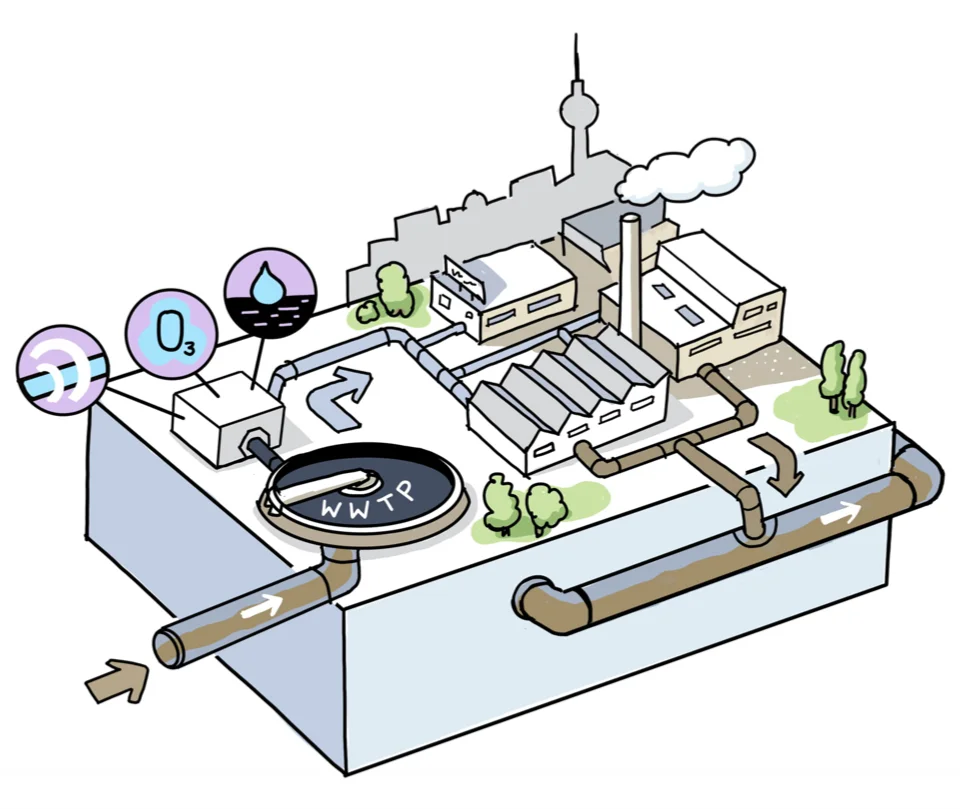Berlin in Germany
The Berlin feasibility study evaluates the potential for water reuse in industrial applications at the Berlin-Ruhleben wastewater treatment plant, one of the largest in Berlin. Therefore, the study is exploring how the planned additional treatment processes improve the effluent quality, thereby reducing efforts to implement water reuse: coagulation and flocculation further reduce nutrient emissions, UV disinfection lowers the bacterial content, while ozone or adsorption on activated carbon remove micropollutants. Additionally, the study identifies any further treatment required for specific reuse scenarios. Risk assessment and management aspects are also considered.
In order to maximise the sustainability of water recycling, the project is geared towards local utilisation. Potential commercial customers have already been identified within a radius of just three kilometres – the wastewater treatment plant is located in an industrial area.
- Location: Berlin (Germany), Ruhleben district
- Water source: Treated wastewater from urban wastewater treatment plant
- Type of treatment: coagulation, flocculation, UV disinfection, ozonation or adsorption onto activated carbon, other fit-for-purpose treatments
- Target water quality: Fit-for-purpose water of varying quality
- Utilisation: Process water, cleaning water and cooling water for industry and commerce, optional: urban irrigation
- Return to natural cycle: Discharge into sewage system, evaporation (in cooling towers)
- Responsible: KWB – Berlin Centre of Competence for Water gGmbh
- Available: Summer 2025
Contacts for further information:
Pia SchumannPia.Schumann@kompetenz-wasser.de+49 30 53 653 835
Elisa RoseElisa.Rose@kompetenz-wasser.de+49 30 53 653 818

